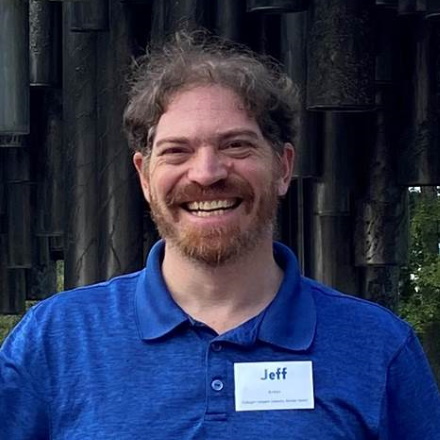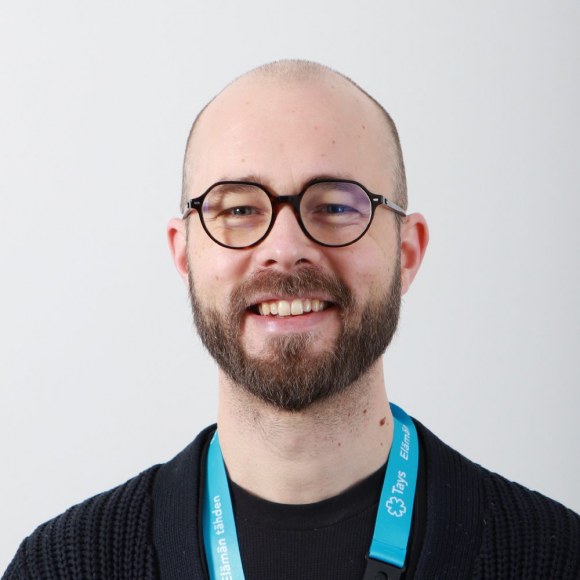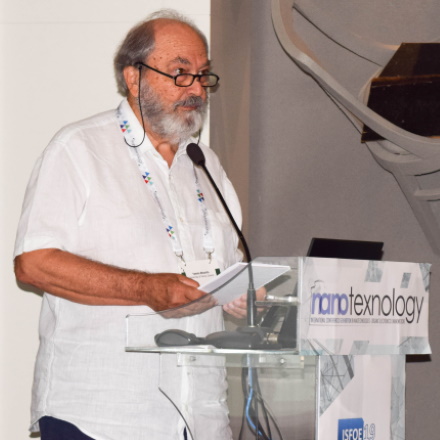Speakers
Keynote speakers

Jeffrey Anker
Title of talk: The curious case of the flashing magnetic microsphere and other stories: Developing novel sensors for biomedical applications
Abstract: This talk will interweave several stories on the conceptualization and application of chemical and biomechanical sensors. We will start with my graduate school work on magnetically modulated optical nanoprobes (MagMOONs) with flashing signals which can be distinguished from constant autofluorescent backgrounds to enable no wash immunoassays and local viscosity measurements; move on to how to sense visible absorption through tissue using X-ray excited chemical luminescence imaging (XELCI); investigate how to study implant infection biochemistry with X-ray visualized implanted sensors (X-VIS); and end with rapid, portable, inexpensive single molecule counting immunoassays for SARS-CoV-2 nucleocapid protein and other molecules based on buoyant and magnetic (BAM) microspheres. Some common themes are curiosity, combining device features synergistically, a connection between chemistry and mechanics, matching technology to application however possible, and perhaps acronyms.
Jeffrey Anker in short: Jeffrey Anker is a College of Science Dean’s Distinguished Professor of Chemistry and Bioengineering at Clemson University. He obtained his BS degree in applied physics at Yale University in 1998 and his doctorate at The University of Michigan in 2005, mentored by Professor Raoul Kopelman. From 2005-2008, Dr. Anker was an NIH National Science Research Award (NSRA) postdoctoral research fellow at Northwestern University under the guidance of Professor Richard Van Duyne. He joined the Clemson Chemistry faculty in August 2008. Current research focuses on developing “smart” implanted medical devices with sensors to detect implant infection and bone healing, as well as imaging and spectroscopy using magnetic, plasmonic, buoyant, and X-ray excited micro- and nano-sensors. He is on a Fulbright Tampere University Scholar on a sabbatical at Tampere University through Dec 2022 focusing on integrated sensors into 3D printed bone scaffolds, with Prof. Jonathan Massera as host and Laeticia Petit as co-host.

Toni Seppälä
Title of talk: Organoids and circulating tumor DNA in clinical and translational research of gastrointestinal cancer
Abstract:
Toni Seppälä in short: Dr. Toni T. Seppälä graduated from medical school as licentiate of medicine in the University of Eastern Finland in 2010 and defended his PhD thesis on Alzheimer’s disease in 2012. During surgery residency he became interested in cancer research with professor Jukka-Pekka Mecklin’s mentorship.
In 2019–2021 Dr. Seppälä underwent a research fellowship at the department of Surgical Oncology in the Johns Hopkins University and Sidney Kimmel Comprehensive Cancer Center in Baltimore, MD, USA, under supervision of pancreatic surgeons Dr. Richard Burkhart and Dr. Christopher Wolfgang.
In 2022, he was appointed as a tenure track professor of cancer research in University of Tampere and leads laboratories and research groups in Tampere and Helsinki Universities. He has worked as a colorectal surgeon since board certification in 2018 at Meilahti Hospital and currently at Tampere University hospital practicing surgical oncology.
He serves on the board of Directors of the European Hereditary Tumour Group, The International Society for Gastrointestinal Hereditary Tumours and the Finnish Society of Surgery.
Dr. Seppälä has published over 70 original articles and dozens of opinions, podcasts and interviews with >3000 citations, and raised over 2.2M euros of competed research funding. He was awarded with Eero Saksela Prize by the Finnish Cancer Institute in 2022.
The majority of Dr. Seppälä’s research have been from the field of hereditary cancer, colorectal cancer and pancreatic cancer, and he is appreciated as a leading expert especially in Lynch Syndrome. His current interests in cancer research are in personalized medicine utilizing precision technologies in solid tumors, such as genomics, patient-derived organoids and cell-free DNA.

Yannis Missirlis
Title of talk: Controversies and key nano insights in long standing physiological and biological dogmas
Abstract: Scientific “truths” are evolving in unpredicted ways by negating previously held “truths” due to many different factors, such as technological advances or different mindsets. Few examples, including: protein adsorption on biomaterials, the brain-gut connections, the immune system and the brain, mechanotransduction , and neuronal functional process will be presented to emphasize the evolving knowledge on these selected biological processes.
Yannis Missirlis in short: Professor Yannis Missirlis graduated as Chemical Engineer from the NTUA (Athens), received a M.Sc in Chemical Engineering, (Syracuse-USA) and his Ph.D. from Rice University (Houston) in Biomedical Engineering. He was Assistant /Associate Professor at McMaster University (Canada) and Professor of Biomechanics and Biomedical Engineering at the University of Patras. His interests include cell-material interactions, mechanotransduction, tissue engineering, biomechanics from nano-to macro level.
